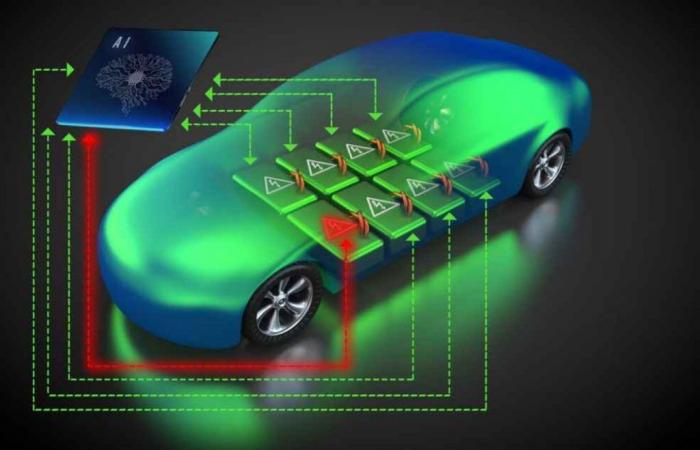Electric car news
While manufacturers compete in ingenuity to improve the range and performance of their 100% electric models, a recent discovery could well change the situation in terms of battery longevity. American researchers have developed a surprisingly simple technique to significantly increase the lifespan of accumulators, without changing their chemical composition. Let’s dive into the details of this promising advancement.
An unexpected discovery thanks to artificial intelligence
Professor William Chueh’s team from Stanford University made a surprising discovery using artificial intelligence to analyze the behavior of batteries during their first charge. Contrary to popular belief, it turns out that an initial charge at high current can significantly improve the long-term performance of batteries.
This method makes it possible to create more space in the positive electrodethus increasing the efficiency of charge and discharge cycles. Additionally, it activates more ions and creates a protective layer against the negative electrodes, reducing overall battery degradation.
Spectacular test results
The researchers conducted a series of tests on 186 batteries to validate their theory. The results are clear: batteries initially charged with a higher current showed a 50% greater longevity compared to those charged conventionally.
Here is an overview of the observed performances:
| Initial charge type | Number of cycles supported |
|---|---|
| Conventional charging (low current) | 1 500 cycles |
| High current charging | 2 500 cycles |
These figures are particularly impressive when you consider that battery life is a crucial factor in the longevity and residual value of electric cars.
A solution easily applicable by manufacturers
One of the most interesting aspects of this discovery is its ease of implementation. Unlike many innovations that require significant changes in manufacturing processes, this method can be applied immediately by manufacturers.
Professor Chueh explains: “We simply changed the last step of manufacturing to configure the battery a little differently.” This simplicity could accelerate the adoption of this technique by the automotive industry, without generating significant additional costs for consumers.

Potential impact on the electric car industry
Increasing battery life could have a significant impact on the electric vehicle market. Here are some potential consequences:
- Reduced consumer concerns about battery longevity
- Improvement in the residual value of electric cars
- Reduction in environmental impact linked to battery replacement
- Possibility of extending battery warranties for manufacturers
These benefits could help accelerate the adoption of electric cars, addressing some of the biggest concerns consumers have.
Future prospects and outstanding questions
Although this discovery is promising, several questions remain unanswered. For example, how will this high-current initial charging technique affect the short-term performance of batteries? Will there be any compromises in terms of power or immediate autonomy?
In addition, it will be interesting to observe how different types of batteries (lithium-ion, solid-state, etc.) will react to this method. Additional research will be needed to optimize the process for the different battery chemistries used by manufacturers.
One step closer to more sustainable electric cars
This breakthrough in battery management perfectly illustrates how innovative approaches can solve complex problems without requiring costly technological revolutions. By simply optimizing the initial charging process, researchers have paved the way for electric cars that are potentially more durable and more attractive to consumers.
While you may be considering purchasing an electric car, keep in mind that innovations like this continue to improve technology. Today’s electric vehicles are already impressive, but those of tomorrow promise to be even more efficient and durable.
As a car enthusiast and keen observer of the electric car market, I can’t help but be excited about these advancements. They remind us that we are still at the beginning of an exciting technological revolution in the field of mobility.
Written by Alexandra Dujonc
After studying electrical engineering, I worked on research and development projects aimed at improving the charging capacity of electric cars, which I made my specialty! I put my in-depth knowledge on the subject of electric charging at your disposal.
React to the article








